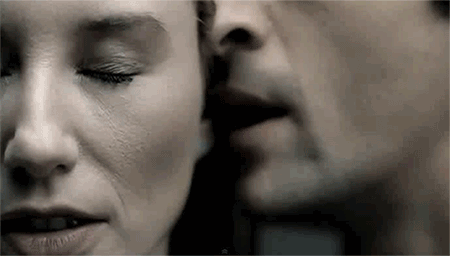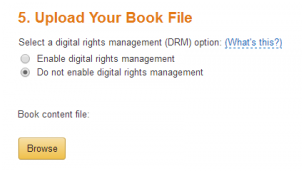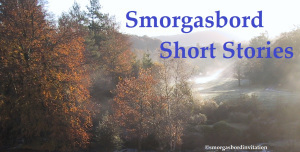Phillip T. Stephens's Blog: Wind Eggs, page 16
March 20, 2017
Do you want to know just the right word?
I used to have a reverse dictionary. I thought about writing one, and then i found it. It didn’t work as well as mine and cost about $40 in 1990. My cats immediately pulled in off the shelf and somehow dragged it into their litter box. (It wasn’t the first or last time). Jean Cogdell introduces readers to OneLook.
In addition to Onelook there’s Wordsmyth or you can buy the Oxford Reverse Dictionary at Amazon.
Happens to me more than I’d like to admit!
I’ve found a tool to help!
I’m on a roll, typing like a maniac. 
Until I stumble over a word.
My writing comes to a screeching halt. A word isn’t right. But I don’t want to stop my progress. After all, I’m a writing maniac. So I use a placeholder, I’ll come back to this section later and figure out the right word or words to convey my thoughts.
However, I’ve now got an itch I can’t scratch. That thought, that missing word or phase will not leave me alone.
Ever happen to you?
My protagonist whispers he can’t work like this, it’s too unprofessional.
Sigh, okay, I cave, save what little progress I’ve made and return to my placeholder. So I…

Think, think, think, I’ve got nothing.
Look up the placeholder word. Huh? Not even close. What was I thinking?
Check thesaurus. What…
View original post 261 more words


A Comma’s Job Security?
Knowing when to use commas is hell. Imagine how they feel. Annette Clark shares her thoughts on the subject.
 The comma stood on the corner, bleating, “Please, can someone help me? I know I belong somewhere, but I can’t quite remember where.”
The comma stood on the corner, bleating, “Please, can someone help me? I know I belong somewhere, but I can’t quite remember where.”
Devon Taylor, copy editor, sat at the counter of the diner counter across the street and watched as passers-by skittered around the pitiful punctuation mark. They looked away determined to not notice it.
Devon (destined to become The Nib) couldn’t really blame them. Commas were notoriously slippery creatures. But there was something about this comma that made Devon think it was truly in trouble.
The editor set down the empty coffee cup and wandered across the street.
“What brings you to Conjunctionville?” Devon asked the punctuation mark.
“Oh! Thank you for helping,” the comma was practically hopping. “I think I’m supposed to meet a couple of independent clauses for a job, but I can’t remember all the details. It was supposed to be…
View original post 228 more words


March 19, 2017
Ever wonder what a Dinosaur Timeline looked like? – Infographic…
Sometimes a post has nothing to do with writing. Unless you’re writing about dinosaurs. Thanks to DinoPit and Christ the Story Reading Ape.
 Chris The Story Reading Ape's Blog
Chris The Story Reading Ape's Blog
Source: DinoPit.com


March 18, 2017
A Letter to a Friend Just Starting Out Indie Publishing
It’s easy to feel lost in the detritus when you’re launching your indie publishing career. Rachel Ritchley shares a few tips that might help you find your way through the details.
So, I have a friend who is a published author, but her publishing company recently shut their doors. It was probably for the best, and in the midst of it a gift actually came in the ability for this dear author friend to take her work to the next level.
It will be so much better than it was with that failed publishing house for a few reasons, but one that is foremost in my mind is that her artistic vision can be put into the hands of people who really care about seeing it thrive, to capture its beauty, and are passionate about making that creative presence shine in the modern publishing industry.
My friend has thus far been shy about drawing attention to herself, but I want to help her draw attention to what she is trying to share with the world, so as I help her take…
View original post 613 more words


Your Author Bio: Does it help your Book Sales or Stop Them Dead?
I’ve read mixed advice on professional writer’s bios, from straight and businesslike to creative expression. The one thing they agree on is, you have to be professional. Readers don’t care about you personally (I sure don’t), they care about what your bio says about your book. If you’re still telling readers about your lifelong desire to write, check out Anne Allen’s post.
 Chris The Story Reading Ape's Blog
Chris The Story Reading Ape's Blog
by Anne R. Allen

No matter how great a book’s cover and blurb, one thing can stop me from buying yet another ebook for my Kindle: an author bio on the buy page that screams “amateur.”
I spent some time as an editor, so when I pick up a book for relaxation, I want to know it’s going to be a professional work and not something that makes me want to run for my red pencil.
If you start your bio “I’ve always wanted to write a book, ever since I won a penmanship prize in third grade, and now that I’ve self-published, “If My Cats Could Talk” my wish has come true…,” all you’ve told me is you’re a beginner.
Is that really what you want your customers to know?
Your buy page at Amazon or any online retail store is like your own personal storefront. It can be…
View original post 187 more words


The Best of Wind Eggs
Looking for that line that will linger a lifetime: The best prose is poetic as well. Tips for styling your stories.
You can’t fix what you never wrote: As wrongheaded as it sounds, the best cure for writer’s block is to write.
[image error]
Image Courtesy of Kicking the Pants
Beware the Validators: Writers’ workshops are wonderful tools for developing your craft, as long as you know who to listen to and who to tune out.
Book Reviews
check out Phillip T. Stephens books at Amazon.com


March 16, 2017
DRM or Not for Amazon
Do you automatically ass Digital Rights Management to your eBooks (like I do)? A writer for Lit World Interviews suggests you might want to rethink that policy.
I wouldn’t repost this if I didn’t think there were some issues to consider.
When you load your book up to Amazon you will get to choose whether or not to enable Digital Rights Management.

It is important to note here that this particular choice cannot be undone. Short of unpublishing and republishing this cannot be changed. Once you have some nice reviews and lots of sales on any particular book unpublishing it is not a great idea, so give some thought to this before setting it in stone. So, what is DRM?
Amazon says that Digital Rights Management “is intended to inhibit unauthorized access to or copying of digital content files”. While this sounds great in terms of combating piracy, in reality it’s about as effective in this regard as a straw hut would be at keeping you dry in a hurricane. My African Me & Satellite TV was published with DRM enabled and it is my most pirated book. Stripping DRM is…
View original post 677 more words


The Scandalous Flap Book History
People gripe about stumbling into a site with naughty pop-up ads, and I find them a bit of annoyance myself. But not because they’re naughty. Naughty is in the eye of the beholder.
The history of literature is replete with erotica and pornography of all sorts, including my favorites, the Tiajuana comics that were still around during my youth. Playboy and the far more graphic underground comics killed them, but they were funny and fun and I wish I still had a few to display for my friends with those Jack Chick comics that had us all bound for hell if we didn’t walk the Roman Road.
It’s hard to tell at what point art becomes erotica, and erotica becomes porn. I know that the ads from Brassers and Vivid that pop up in my mailbox fall clearly into the latter category and the Mona Lisa in the former. That being said, I look at a woodcut by Albrecht Dürer and the prints in a flap-book and think, “an artist has to make a living however she can.” Comic artists were just as important and sooner or later they would turn to sex as their inspiration.
Don’t be Church Lady. Check out Sarah Laskow’s post on Renaissance era flap books. You might have fun.
 Mary Natalie reading a story about an insomniac bear who bears (heh heh) an uncanny resemblance to her dad.
Mary Natalie reading a story about an insomniac bear who bears (heh heh) an uncanny resemblance to her dad.
Mary Natalie loves her flap books so much that we now have an assortment of them. My personal favorite is probably Spot, although that was before I realized what a scandalous history flap books have, courtesy of Sarah Laskow of Atlas Obscura. To my great surprise, flap books were first conceived not as innocent children’s companions, but as titillating mementos of tourists’ good times in what can only be described as Renaissance Europe’s own Las Vegas: 16th century Venice.
What Happened In Venice…
Sixteenth-century Venice was a cosmopolitan, wealthy city, known for its diversity, romance, and relaxed mores. As a republican port city, it was tolerant of all sorts of people and all sorts of behavior in ways that other European cities were not. All this made the city a popular…
View original post 297 more words


March 14, 2017
Smorgasbord short story – The System Administrator by Sally Cronin
Having worked for a chain of terrible bosses—the CEO who made appointments wait for half an hour across from his desk while he read through his correspondence (he used old memos if he had nothing new), the supervisor who kept track of the minutes it took me to use the restroom and every other task assigned, the three department heads who thought they were my supervisor and barraged me with conflicting directives, the CEO who expected me to turn over my grants to him to spend as he pleased and I was supposed to show every dollar was spent as I requested—I have to admit that we all need Martha working at our places of employment.
 Smorgasbord - Variety is the spice of life
Smorgasbord - Variety is the spice of life
The System Administrator by Sally Cronin
Jennifer stood in the middle of the lift and stared at her black leather pumps. She noticed a scuff on the left side of the toe of the right shoe, realising that she had kicked the full waste basket a little harder than she thought at the time. She was weary and unusually tearful. It had been a tough week all round with particularly hard advertising revenue to achieve, but it had ended on the sourest note of all.
She managed a team of fifty telephone sales canvassers who sold high end car and luxury property advertising for the national online paper she worked for. These days both those markets were tough going. It seemed that people were hanging onto high ticket items waiting for a rise in demand for both.
However, her boss who lived in his ivory tower of an office on…
View original post 1,468 more words


March 13, 2017
Looking for that line that will linger for a lifetime
New Zealand novelist Odelia Floris once blogged that writers should read more poetry.
She claims “there is much you can learn by dipping into the poems of some of the greats….their language is diverse, their sentence structure[‘]s innovative, and their use of metaphor outstanding.”
She insists this holds true even for authors with no literary aspirations, who write only to entertain. She holds instead that “If your language is limited and repetitive, your sentences awkward, your metaphors clichéd or non-existent, your novel is more likely to bore and annoy.”
I couldn’t agree more. The ability to write crisp, stylized prose separates first-rate writers from the writers lost in the middle of the pack. In fact, I would argue that before the corporate number crunchers took over the publishing houses and editors made the purchasing decisions rather than marketing departments, fiction editors looked for writers who could sell a line more than those could simply tell a story.
Nothing helps writers develop an ear for those savory lines and delicious phrasing —those lines readers want to ponder long after the story finishes—than an appreciation of poetry.
I can already hear my narrative-driven writing friends saying, “Hold on, Stephens. You never want to interrupt the reader’s experience of the story. Or to cause them to come up from the flow of the narrative and remember they’re merely reading a book.” To that I say, Get a grip. That model of reading is a fantasy, a useful model for teaching writing.
In fact, it’s one I use myself. But it’s hardly realistic.
[image error]
Image by Carli Jeen (Unsplash)
The real world interferes with the reader’s engagement of the narrative. Cats, doorbells, spouses, flies on the nose, the announcer on the radio they’re listening to in the background or the end of their playlist.
Why not the awareness of a particularly choice dollop of prose? One they can roll at the back of their tongue like a fine wine and mull over the textures and flavors before dipping back under the surface of the book?
I’ve stopped to sniff those finely scented lines ever since my first college teacher made me aware that language offered a separate level of engagement with readers. It’s only made my reading experience more robust.
Some writers might think the ability to write highly stylized prose is beyond them, but my first attempts resembled chicken scratchings and rat droppings. I improved. I even admit you may never learn. If you’re the person at the party who never gets the joke, if you honestly can say you can’t hear the beauty in music other than the genre you prefer, if you read Jane Austen or even Alan Bradley’s Sweetness at the Bottom of the Pie and can’t see they’re a cut above Sue Grafton or Laurel Hamilton, you’re most likely hopeless.
For the rest of you, however, I can’t help but stress the importance of dipping your toes into some of the great poets and then the great novelists and bringing some style to your prose.
Floris wants to take readers back to Tennyson for her lesson in poetic prose. Admittedly, Tennyson was a great poet. But moving from a twenty-first-century head space to the nineteenth-century Victorian headspace (she would say Romantic) can be a bit of a leap. So I want to look at some well-known lines from poets of the last century to demonstrate the power of a stylized line. Then we’ll look and see what their fellow novelists were doing.
We’ll start with one of the best examples of stylized language written in the English language, Yeats’ poem Memory</>:
One had a lovely face,
And two or three had charm,
But charm and face were in vain
Because the mountain grass
Cannot but keep the form
Where the mountain hare has lain.
I don’t intend to discuss the meaning or merits of this poem about an aging man trying to recall the women he loved in his youth (you have the Internet for that). Rather I want to point out the grace, clarity and vividness of his language. It rolls of the tip of the readers’ tongues and seeps into the corners of our own memories. We can dwell on it for minutes or hours. It stays with us like the memory of a fine wine or liquor.
If the Yeats poem didn’t move you, then you might want to take a free community poetry appreciation course offered by your local college.
The styled poetry line
Contrary to popular belief, not every line of poetry rips your heart out or soars on clouds of genius. Many are as mundane as two-star indie romance. But when a line leaps out and grabs you, you want to dwell on it. The poet Anne Sexton had a great line about her father’s photo scrapbook:
This is the yellow scrapbook that you began
the year I was born; as crackling now and wrinkly
as tobacco leaves…
All My Pretty Ones
Wallace Stevens’ Emperor of Ice Cream is often quoted in classrooms, but this line from The Man With the Blue Guitar has always gripped my gut. It comes in the form of a non-sequitur in which the poet meditating on an image of the guitarist suddenly wants:
To drive the dagger in his heart,
To lay his brain upon the board
And pick the acrid colors out,
To nail his thought across the door,
Its wings spread wide to rain and snow…
Sandra Cisneros, whom I had the privilege to perform with more than once at Mexic-Arte in Austin, invokes war metaphors to describe her relationship to her lover.
There should be stars for great wars
like ours.
There ought to be awards
and plenty of champagne for the survivors.
…
Maybe in this season, drunk
and sentimental, I’m willing to admit
a part of me, crazed and kamikaze,
ripe for anarchy, loves still.
One Last Poem for Richard
Lisa Zaran, another contemporary, evokes the similar sense of non-sequitur but with strikingly different results in her poem Girl:
She said she collects pieces of sky,
cuts holes out of it with silver scissors,
bits of heaven she calls them.
That image just calls for the reader to sit back and sip again. To try, not to picture the girl physically cutting holes in the sky, but to collect the images in the girl’s head and wonder how her mind must work.
By contrast, poets like William Carlos Williams used simple phrases with ordinary construction to create vivid images in the reader’s mind. In this way his use of language was no less stylized than the others.
This is Just to Say
I have eaten
the plums
that were in
the icebox
and which
you were probably
saving
for breakfast
Forgive me
they were delicious
so sweet
and so cold
Even though Williams weaves this poem from two simple declarative sentences, he manages to evoke the sweetness of the plums more assuredly than a thousand words of description. This is both the inspiration and the craft behind the use of stylized language.
Other poets, by contrast, play with words until they become pictures as well. e.e. cummings is acknowledged master of stylized poetry, as illustrated by his famous poem [Buffalo Bill ‘s]:
Buffalo Bill ’s
defunct
who used to
ride a watersmooth-silver
stallion
and break onetwothreefourfive pigeonsjustlikethat
Jesus
he was a handsome man
and what i want to know is
how do you like your blueeyed boy
Mister Death
I hope these few examples demonstrate how much the language of the stylized line can elevate the reading experience. I also hope the examples provided make it clear that poetry is nothing like the florid tedious drivel or the dense self-referential masturbatory exercise that popular mythology paints it in popular depictions.
Turning to poem to prose
But can we incorporate the same kind of stylized language into fiction? Absolutely. Great writers have been doing it for years, and not just in what we now think of as literary fiction. Consider Raymond Chandler, author of the Sam Spade novels and considered by many one to be of the fathers of modern crime fiction.
His prose served as a model for the narrative and dialogue in films and novels to follow. Consider this short description from The High Window, which tells us everything we need to know about a woman, and a great deal about the narrator as well: “From 30 feet away she looked like a lot of class. From 10 feet away she looked like something made up to be seen from 30 feet away.”
Or consider this scene description from the short story Red Wind: “There was a desert wind blowing that night. It was one of those hot dry Santa Anas that come down through the mountain passes and curl your hair and make your nerves jump and your skin itch. On nights like that every booze party ends in a fight. Meek little wives feel the edge of the carving knife and study their husbands’ necks. Anything can happen. You can even get a full glass of beer at a cocktail lounge.”
Most writers would focus on the temperature of the wind, the color of the night sky, the sand, the howling wolves. Chandler riffs off the wind taking you to a drunken party and ending in murder. The hook is the line, “Meek little wives feel the edge of the carving knife and study their husbands’ necks.” Wow, how can you not sit back in your chair and pour a double shot of that line?
Or consider this opening to the story, Dry September, by William Faulkner: “Through the bloody September twilight, aftermath of sixty-two rainless days, it had gone like a fire in dry grass: the rumor, the story, whatever it was. Something about Miss Minnie Cooper and a Negro. Attacked, insulted, frightened: none of them, gathered in the barber shop on that Saturday evening where the ceiling fan stirred, without freshening it, the vitiated air, sending back upon them, in recurrent surges of stale pomade and lotion, their own stale breath and odors, knew exactly what had happened.”
This is an almost parallel paragraph to Chandler’s. The heat drives someone to murder. Notice the metaphor of recirculating, only this time it isn’t the air, it’s the story, the scent of pomade, bad breath, and lotion.
Most writers would begin something like this: “On a dry night in September the rumor spread though town that a Negro boy attacked Miss Minnie Cooper. It wasn’t long before the fellows gathered in the barber shop the way they usually did on Saturday night and got to talking about poor Miss Minnie and that Negro boy.”
Or: “Jefferson was a small town in Mississippi where people tried their best to get along in times of depression. But in the month of August, when the heat was highest and they’d seen no rain since May, when the dust clung to people’s clothes in thick layers, tempers tended to be shorter than usual.”
These openings don’t suck. They’d be typical openings for this short story in the hands of most writers, and that would be why no one would remember “Dry September” if most writers wrote it. Faulkner’s ability to write words like they were wrapped in bacon and deep fat fried earned him a place in literary history.
How’s this for an opening? Walker Percy launches his novel Love in the Ruins with these words: “Now in these dread latter days of the old violent beloved U.S.A. and of the Christ-forgetting Christ-haunted death-dealing Western world I came to myself in a grove of young pines and the question came to me: has it happened at last?”
Those words are poetry, pure and simple, and, when I first read them, wrapped my brain in a cloud of exhalation, lifting me from my couch on a September afternoon and transporting me to the reading room of the muses. Rarely does the language of a novel hook the reader, but those words hooked me and I didn’t quit reading until three in the morning when my wife made me come to bed. What made Love in the Ruins unique was not the plot, although Percy created a world in which the end of the world depended on the quantitative qualitative ontological lapsomiter (a handheld device built around a philosophical paradox), but the luscious language perfect for catastrophe in New Orleans.
Percy’s wrote such vivid and dynamic prose that I still remember when and where I read that book, and I can think of only a handful of books where that’s true (and in each case, the writers also wrote exquisite prose).
Dr. Thomas More, the descendant of the author of Utopia, wanders through the novel delivering wry commentary on himself and his neighbors. “I believe in God and the whole business but I love women best, music and science next, whiskey next, God fourth, and my fellowman hardly at all.” Later he muses, “What does a man live for but to have a girl, use his mind, practice his trade, drink a drink, read a book, and watch the martins wing it for the Amazon and the three-fingered sassafras turn red in October?”
This is a novel you can savor on a fall afternoon, sitting by the window while the leaves blow by with a glass of wine by your side, or cider and a donut, tea perhaps or even a fine single malt scotch. (No ice to water it down.) Maybe a cheese plate with some figs and grapes. Your window cracked open just a hair so you feel the breeze as it passes. All because the author took the time to whittle his wordcraft to a fine art.
More observes of one of his women, “What she didn’t understand, she being spiritual and seeing religion as spirit, was that it took religion to save me from the spirit world, from orbiting the earth like Lucifer and the angels, that it took nothing less than touching the thread off the misty interstates and eating Christ himself to make me mortal man again and let me inhabit my own flesh and love her in the morning.” That sends shivers through my spine. Okay, maybe the scotch helps, but still, how can you not read that and feel the connection between the angels and the earth as well?
I prefer these writers any day over one who writes, “Tod’s mom served macaroni and cheese for dinner. It was his favorite dish. He made sure to have a second helping before he slipped out his bedroom window to search for more clues to whoever was harassing his friend Tommy.”
Flannery O’Connor, a Southern writer who grappled with her Catholic heritage, proved equally adept at the wry line. The average writer would describe a woman who takes forever to get to the point exactly as I just did: “Jane drove everyone crazy when she joined the conversation. She took forever to get to the point, if she ever made it.” Consider O’Connor’s description from the story “Everything That Rises Must Converge:”
He groaned to see that she was off on that topic. She rolled into it every few days like a train on an open track. He knew every stop, every junction, every swamp along the way, and knew the exact point at which her conclusion would roll majestically into the station.
Thomas Pynchon takes a different approach to language, often blowing his readers minds’ to scattered fragments with a blunderbuss of prose. Consider this passage from V:
I am the twentieth century. I am the ragtime and the tango; sans-serif, clean geometry. I am the virgin’s-hair whip and the cunningly detailed shackles of decadent passion. I am every lonely railway station in every capital of Europe. I am the Street, the fanciless buildings of government. the cafe-dansant, the clockwork figure, the jazz saxophone, the tourist-lady’s hairpiece, the fairy’s rubber breasts, the travelling clock which always tells the wrong time and chimes in different keys. I am the dead palm tree, the Negro’s dancing pumps, the dried fountain after tourist season. I am all the appurtenances of night.
In this passage Pynchon’s prose wanders in every direction, like urban sprawl of language, twists and turns of phrase that readers can wander through until they’re lost and must force themselves to stop to enjoy the locale. Maybe sip a cup of coffee at the corner cafe before braving the streets once more. Reading Pynchon is like reading Joyce and wandering into a theater playing a Three Stooges film with subtitles from Cheech and Chong. If you’re willing the rush is worth it.
Other writers, like Doris Lessing in The Golden Notebook, prefer crisp, pristine prose. “…music attacks my inner ear like an antagonist, it’s not my world. The fact is, the real experience can’t be described. I think, bitterly, that a row of asterisks, like an old-fashioned novel, might be better. Or a symbol of some kind, a circle perhaps, or a square. Anything at all, but not words.”
I’m not saying language alone can drive a novel, but it adds a dimension that will set your novel apart, like the one card whose edge is’t flush with the deck. It can draw an audience other novels will never find.
Some readers may at this point be scratching their heads (if they’re still reading). They’ve been reading these examples and they don’t see what makes them special. But developing an ear for stylized language takes time and practice, just as developing a palette for fine wine takes time and practice.
A brief segue into the value of an educated palette
And here I want to toss in with the notion of the educated palette. I come from a family with two distinct lines of heritage. One chose to pursue an education. The other didn’t. One chose to try more expensive wines (or wine period), finer restaurants and books that require a little more thought (to a greater or lesser degree). The others didn’t.
My mother was caught in the middle.
My father, a Baptist minister, was wined and dined by many of the people he worked with in politics and other denominations but never admitted it his family because our denomination frowned upon such pastimes. So my mother had to be coaxed into trying wine and good food after he died. (She was always a voracious reader, but only because Dad never paid attention to books, at least until the book banning craze began my senior year in high school.) Once Carol and I assured her that we were going to enjoy our meals no matter what she chose, she finally broke down and ordered from our side of the menu.
Those members of my family who educated their palette have never regretted the decision. We enjoy their conversation more, they have a wider circle of friends, we are still members of our churches and our religious beliefs have changed relatively little. In other words, we aren’t going to hell in a handbasket as the other side of my family predicted.
Those members of my family who chose to narrow their tastes enjoy a much smaller menu, don’t participate in many of our conversations, have a smaller circle of friends and their bookshelves are smaller with a very narrow range of topics. Their vocabulary is limited and they don’t catch many political and social references.
As an author, you want to appeal to both audiences. You want to give a ripping good story to audiences with no ear for nuance. But you want readers with a seasoned ear to say, “This is a writer I relish.” To court those readers, you may have to educate your reading palette to experience the nuance they experience.
You’ll never regret the time you took to do so. On those nights you can’t sleep and you’ve squeezed your brain for every last word until blood drips onto your keyboard, you may be glad you have that volume of Wallace Stevens on your headboard and the eye for the poetic line that makes it worth reading.
More so when a fan writes and says, “That line in your book. The one that goes, ‘….’ It will stick with me for the rest of my life.” The glow from those words will last for the rest of the day.


Wind Eggs
As much as I admire Plato I think the wind eggs exploded in his face and that art and literature have more to tell us, because of their emotional content, than the dry desert winds of philosophy alone. ...more
- Phillip T. Stephens's profile
- 31 followers














